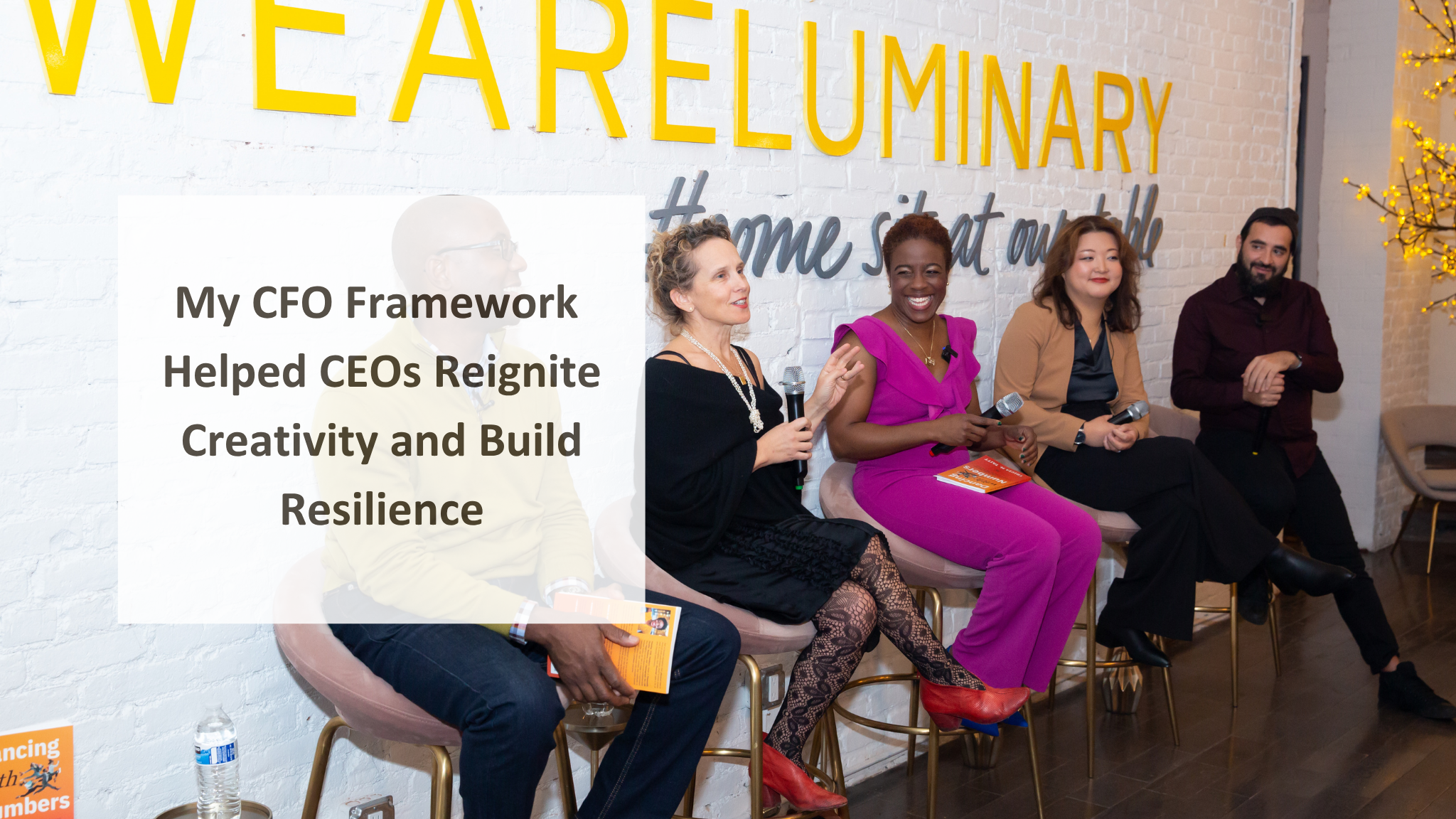Juneteenth just passed, and like many Black business owners, I took some time to reflect.
Not just on history, but on the present…
…on what it means to lead, to build, to create freedom for ourselves and our communities—not just in theory, but through our businesses. Through our choices. Through how we respond when the world feels heavy, which brings me to this.
I don’t make time to watch the news anymore.
Not because I’m unaware or uninterested. But because if I let it all in—every headline, every crisis, every moment—I wouldn’t be able to function.
I wouldn’t be able to be creative, make sound decisions, or run my business the way I want to. And I learned that the hard way.
Why I Had to Rethink How I Show Up as a CEO
During the pandemic, I got stuck – not just because of the health crisis, but because of all the racial tension, the economic uncertainty, the constant stream of heaviness.
I wasn’t in love with my business anymore. I was just trying to survive.
It froze me for a good three to six months which, if you run a business, you know that’s a lifetime.
But that time also gave me space to think. I started asking myself:
What am I here to do? What kind of business do I really want to run? What’s the deeper purpose?
And when I had some clarity, I let that purpose lead the brand.
That shift made me realize something deeper.
As a Black woman business owner, I needed new tools for resilience.
Not just financially—but mentally, emotionally, and structurally.
So one of the first things I did?
I stopped watching the news.
But the other thing I did? I started innovating inside my business.
I learned about a framework I talk about in my book, Dancing with Numbers —the Doblin Institute’s Ten Types of Innovation. I used it to find new revenue streams and rethink the way I was working.
The Tool That Helped Me—and My Clients—Grow Smarter
That same framework is something I now bring to my clients.
Recently I facilitated an CFO Office Hours at Luminary in partnership with marketing expert, Madeline Reeves. We led a discussion on how business owners can be more financially fearless and resilient—by thinking differently about innovation.
It sparked something.
One of my clients who attended the office hours asked me to run a session with her entire team. I walked them through the same process I had used in my own business, and here’s what happened:
What Happened When We Put the Framework into Action
- They came up with 12 new ideas to generate revenue
- We sorted them into short-term vs. longer-term opportunities
- We prioritized the ones with the greatest impact—on their business, their customers, and society at large
- And they picked a few to pilot, assigned ownership, and built in metrics to track progress
But what really struck me was this:
It wasn’t just a strategic (financial) exercise. It was a team-building moment.
Because sometimes, as the CEO, it feels like the burden to fix, grow, and reinvent the business is all on you.
This process brought the team into that vision. It got them thinking like owners. It gave them a say in what comes next—and real responsibility to help make it happen.
And that, to me, is how strategy and finance can influence culture and move a mission forward.
That’s how innovation becomes resilience.
This Is the Kind of Strategic Financial Work We Do
I don’t claim to be a strategy consultant. I’m a financial partner.
But sometimes, the work requires out of the box thinking—so we can actually get to the numbers we want. Revenue. Profitability. Cash flow. Alignment with the team and mission.
And my team is here for that.
Let’s Talk About What’s Next for Your Business
If you want to talk about how this process could work in your business, book a free 30-minute consultation with me.
We’ll look at where you are, where you want to go, and how to get there without carrying it all alone.
>>[Book Your Free 30-Minute Consult] <<
Because we all deserve to build something that lasts—something that works for us, too.
Tricia M. Taitt
Author of Dancing with Numbers

Tricia Taitt is the CEO and Chief Financial Choreographer of FinCore. She holds an M.B.A from The Fuqua School of Business of Duke University, and a BS in Economics with a Finance concentration from The Wharton School at the University of Pennsylvania. For over 20 years, she’s been a finance professional. Half of the time was spent working on Wall Street while the other half was spent in the trenches side by side with small business owners. As a result of working with FinCore, clients have been able to take control of their numbers and feel more confident in their ability to make decisions, while increasing profits by 10% and building a cash stash to invest in growth. Follow Tricia on LinkedIn and Instagram.
If you’re ready to see what our team of CFOs can do for your small business, Schedule a Financial Strategy Session.

